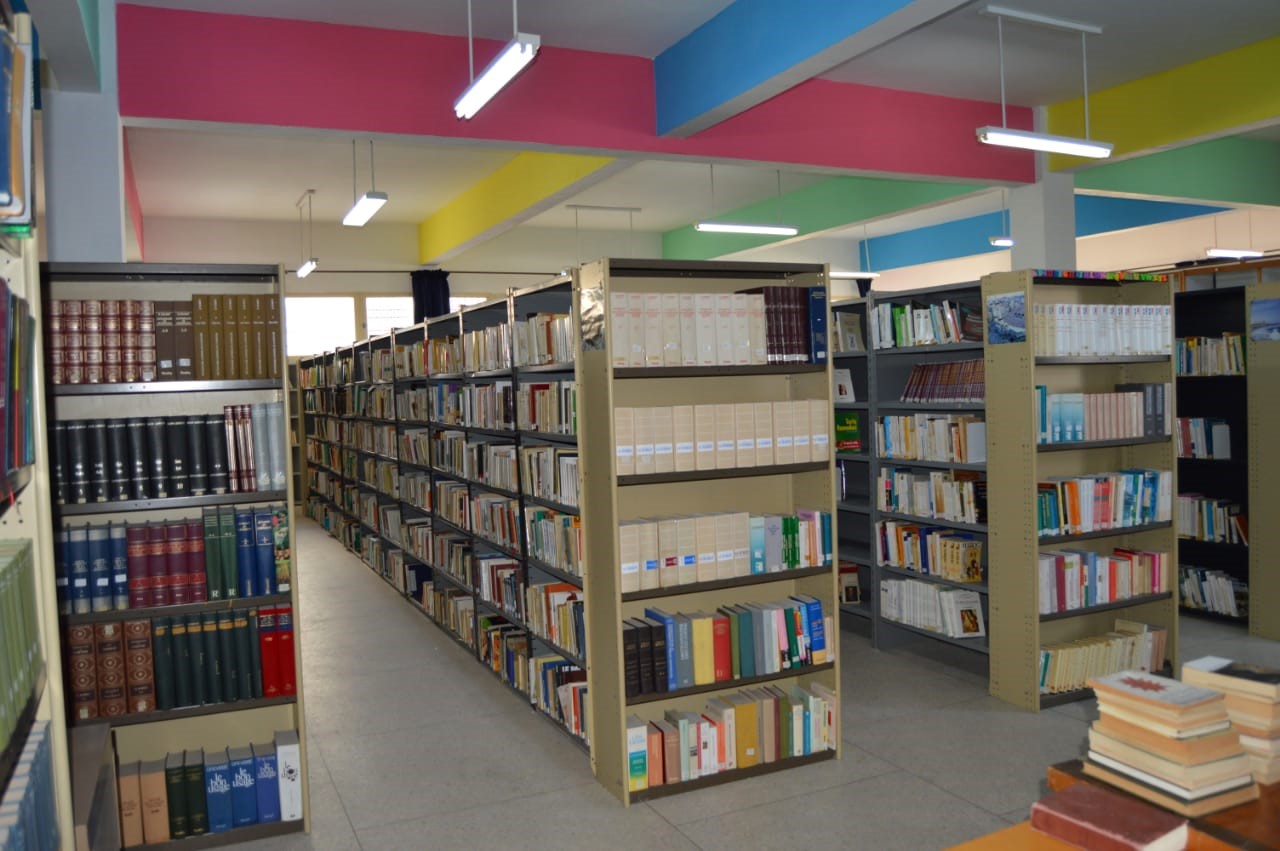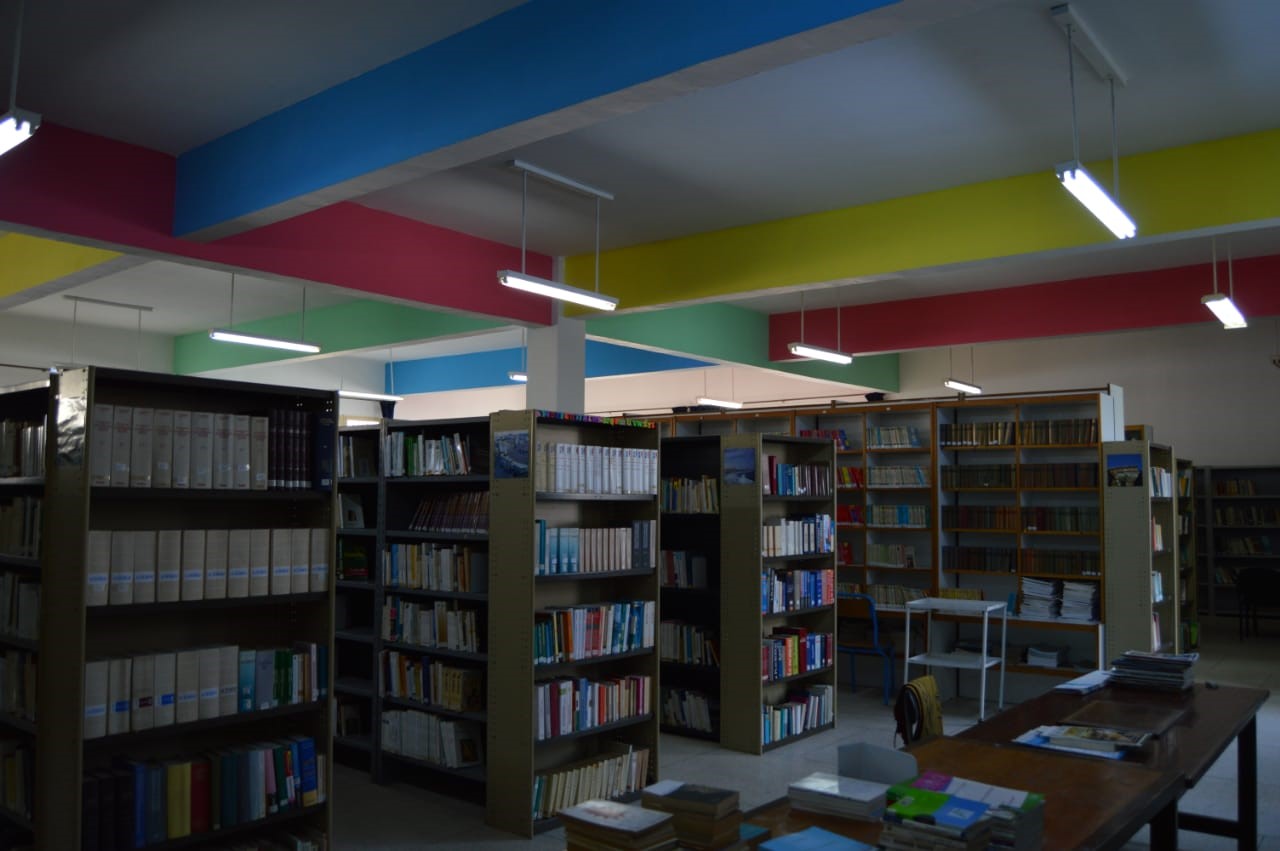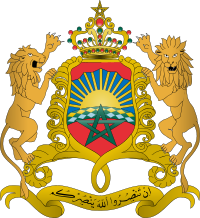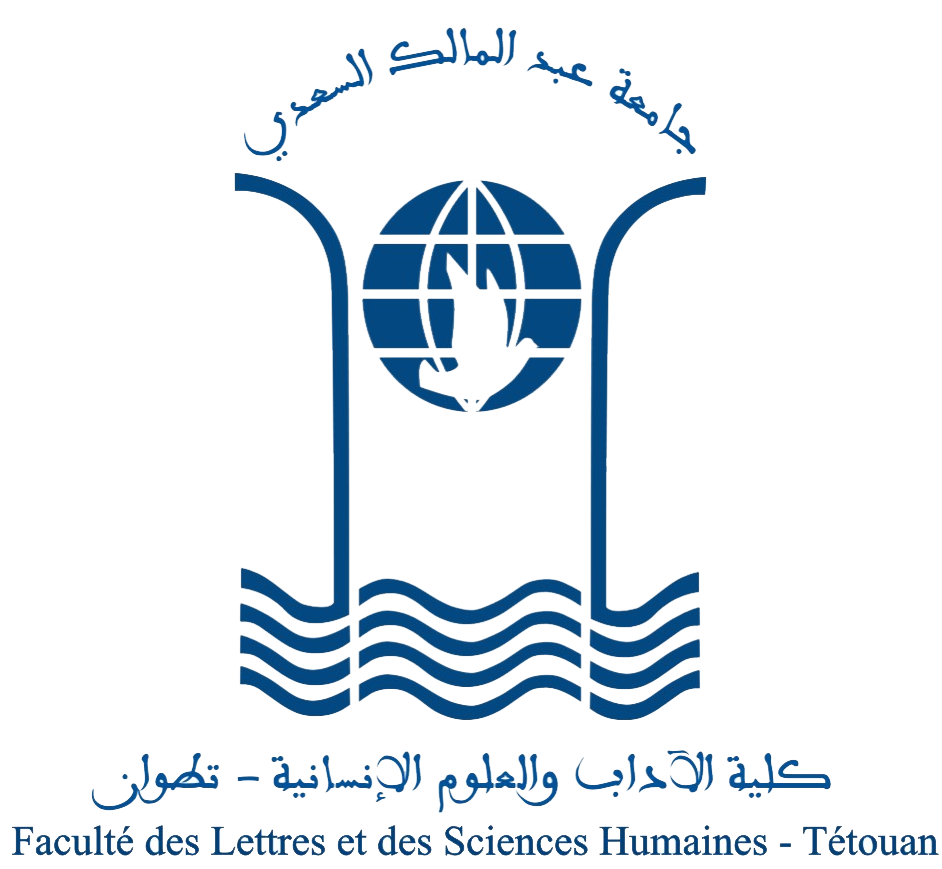Faculty of Letters and Humanities Library
Faculty of Letters and Humanities Library
The library opened its doors to meet the needs of students and professors from various departments since the inauguration of the Faculty of Letters and Humanities in Martil in1982. Until now, the library has witnessed significant improvements at the level of organization and equipment; it now contains thousands of Arabic sources of reference in terms of folios, old prints, manuscripts, critical books, dictionaries and other publications, along with a large number of holdings in French, English, and Spanish.
The library also takes interest in the latest developments in academic writing and publication. It is supervised and managed by a well-trained team available to help students have access to the resources, facilities, and services.
The library treasures an enormous repertoire of archival documents, books periodicals and other works, alongside a variety of authoritative sources and references relating to research curricula in various disciplines and in different languages, viz, Arabic, French, English, and Spanish.
The library has been placed at the disposal of the college departments to satisfy the growing needs of professors, students and researchers in various fields and disciplines such as history, sociology, psychology, philosophy, geography, Islamic studies, translation, literature etc.
The library currently includes a number of facilities:
- Administrative wing
- Documents repository
- Hall for periodicals and research projects (Postgraduate section)
- Large reading hall for students
- Cartography section
- Computer Assisted Research hall
- A space for students with special needs
The holdings of three private libraries were donated to the faculty:
- Mohamed Afailal Library
- Mohamed El-Khatib Library
- Mohamed Boulaich Library
There are about 62,735 books available in the Arab section and approximately 52,080 in the foreign pavilion.
The library uses the decimal system (CDU) in classifying documents. It is currently equipped with a computer system in the office service, following the digitization policy of the Moroccan University. This new digital management system will bring about positive results to academic research in general and bibliographic scholarship in particular.


.jpg)





